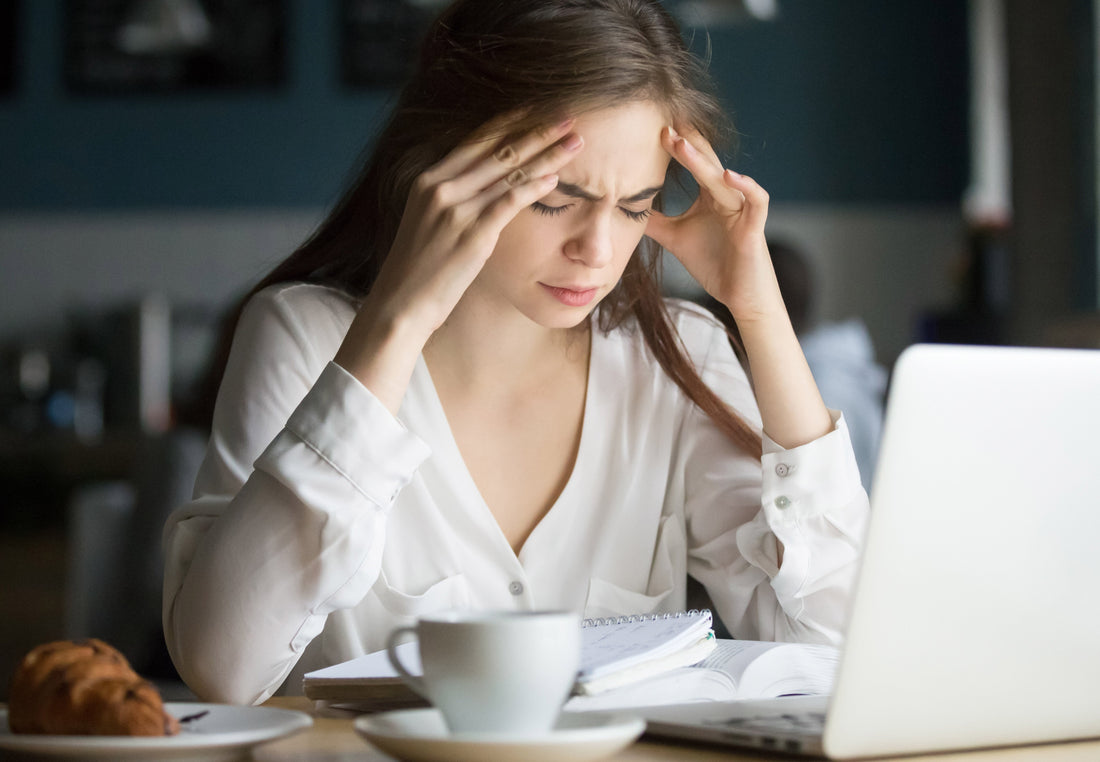
Why Am I So Tired? 5 Ways To Get a Better Night's Sleep
Share
If you’re constantly wondering, “why am I so tired?” then you’re not alone! A massive 1-in-3 adults don’t get enough sleep. But the answer to your midnight “why can’t I sleep?” frustrations might be simpler than you think.
If you feel tired all day but wide awake at night, or are sick of tossing and turning, our top sleep tips might be just the trick to help you drift off for a better, more satisfying slumber.
Why is Sleep So Important and Why Am I So Tired?
While we sleep, our brains and bodies complete numerous key tasks that keep us healthy. This includes everything from repairing and building muscles to transporting the day’s events into long-term memory.
But why am I so tired all the time and lacking energy? Well, not getting enough sleep can cause far more severe effects than simply feeling tired. A lack of sleep is commonly associated with weight problems, overeating, a lack of concentration, forgetfulness, and much more.

How Much Sleep Do I Need?
Adults require 7-9 hours of sleep every night for their brains and bodies to operate properly, according to the National Sleep Foundation. Teens and older adults (65+) should aim for up to 10 hours.
Why Can’t I Sleep?
For most people, sleepless nights are a symptom of stress, anxiety, or even depression. While the odd restless night after a stressful day isn’t unusual if you’re regularly lying awake all night and wake up wondering “Why am I so tired and groggy?’, then this could be a sign that something deeper is going on.
That said, sleeplessness can also be caused by a sleep-unfriendly atmosphere. Anything from too much light, a poor diet, lack of exercise, or an uncomfortable bed might be preventing a peaceful slumber.

Top Tips For a Better Night’s Sleep
If you’re regularly not sleeping, waking up feeling groggy or struggling with tiredness throughout the day, making a few simple adjustments to your bedroom and night-time routine could make a world of difference.
With these 5 science-backed sleeping tips, you may well discover the secret to sleeping better is simply in the preparation.
1. Make Your Bed Comfier
If you’re uncomfortable in bed, then falling asleep is going to feel like an impossible task - and even if you do sleep, you may well be waking up feeling tired, with neck and back pain to boot!
Ask yourself the following:
- Is your mattress the right balance of soft/firm?
- Does your pillow offer sufficient support to your head and neck?
- Is your duvet too thick (hot) or thin (cool)?
- Is your bedding soft and luxurious or scratchy and uncomfortable?
Experts tell us we should be changing our mattress every 5-8 years, so if you’ve been sleeping on the same bed since you were a teenager, it’s time for an upgrade!

2. Restrict Light
By now, we all know that the blue light from our devices is terrible for sleep, but even if you keep your phone far from the bed at night, there are other light disturbances to consider.
One of the best tips for a better night’s sleep is to invest in a quality set of blackout blinds or curtains to keep those pesky street lights out. You could also try eye masks for blocking out any unwelcome light both outside and inside the home. Not only are eye masks fantastic for home bedtimes, but they’re also a brilliant item for travellers who can’t always control the quality of their sleep environment.
Our self-heating eye masks are infused with soothing scents to cultivate a relaxing and soothing atmosphere, perfect for at home or on-the-go snoozing. Try our Luna Eyes masks to drift into a naturally relaxing sleep, or Divine Eyes to melt away the pain of strained or tired eyes.
If you must use your phone or computer in bed, turn down the brightness and consider downloading an add-on like f.lux to reduce blue light. You could also buy a pair of blue-light glasses to help get your circadian rhythm back in line.
3. Minimise Distracting Noises
Even when we sleep, our ears are listening out for threats or disturbances. This might have been great when vigilant sleeping was essential for survival, but when you’re comfy and cosy in your own room, it can mean you’re waking up to non-threats like your kids flushing the loo or nightly traffic.
Headphones or earphones are a valuable addition to improve your sleep quality, although experts don’t recommend them as a long-term solution. White noise machines are also brilliant, as they help regulate the audible frequencies in your home so that car alarms or your partner’s snoring feels less jarring to your slumber.

4. Try Some Relaxing Aromatherapy
Although they were once seen as a bit of a “hippy” option, essential oils have now been proven to offer a range of health benefits, including strengthening the immune system and soothing anxiety.
Fragrances such as lavender and jasmine are excellent sleep aids and will have your brain and body feeling more relaxed in no time. Try a relaxing pillow spray to infuse your bed with glorious, sleep-encouraging scents. Or use our Luna sleep rollerball (infused with essential oils including lavender, eucalyptus, and patchouli) on your pulse points to help your mind unwind.
Alternatively, an essential oils diffuser or scented candle near the bed is an excellent way to transform your bedroom into an aromatherapy masterpiece. Our Twinkle Light scented candles set is a great introduction to aromatherapy, with fragrances specifically chosen to Restore, Revive, or aid with sleep.
5. Stick to Morning-only Coffee
Studies show that when we drink caffeine, it stays in the body for up to 6 hours. So, while your mid-afternoon pick-me-up might give you the energy you need for your next meeting or the school run, it’s a good idea to limit coffee and caffeinated drinks to before 2pm.
Herbal teas offer an excellent solution to caffeinated drinks, with natural ingredients that can help the mind and body reach peak performance throughout the day.
In the evenings, chamomile, lavender, or green tea can soothe an overactive mind and help your body relax.

How Your Senses Can Help You Sleep
The eagle-eyed among you might have noticed that our five top sleeping tips correspond with the five senses: touch, sight, sound, scent, and taste. This isn’t an accident.
Our senses influence every aspect of our lives, sending powerful signals to our brains to let us know when our atmosphere is safe to rest or when we need to be alert to deal with potential threats.
By understanding our senses’ role in our mood and general well-being, it’s simple to create the perfect atmosphere to encourage peaceful and quality sleep. Our Sensory Retreats Sleep Retreat Treat Box contains everything you need to make each of your senses relaxed and sleepy.
(MORE: How the Menopause Affects Sleep)
